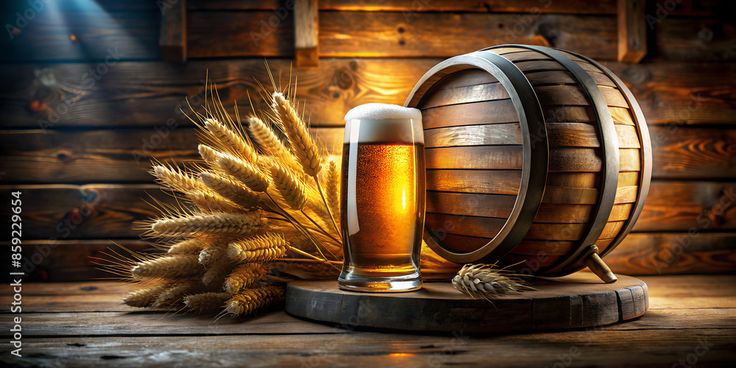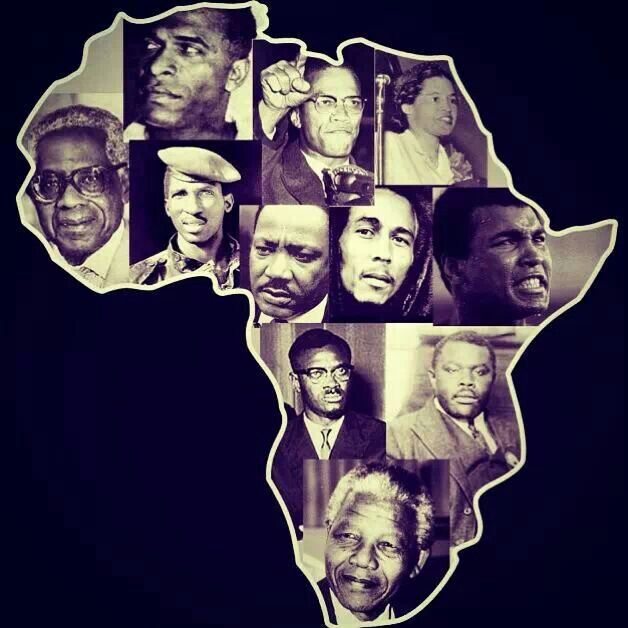The Hidden History of Beer: When Brewing Belonged to Women

Every time someone clinks a glass of beer today, they’re unknowingly echoing a tradition that began more than five thousand years ago. Long before breweries became billion-dollar industries or men in aprons claimed the title of “master brewer,” it was women who ruled the craft. Yet today, the world celebrates male-dominated beer corporations, ignoring the fact that women were the original pioneers of one of humanity’s oldest and most cherished drinks.
The story of beer is not just a tale of hops, barley, and fermentation. It is a story about power, gender, and cultural evolution. It is about how an innovation once considered a domestic skill became a global industry, largely written out of its true origin story.
Beer has played a central role in human history. It has fed armies, fuelled civilizations, and even shaped the rise and fall of empires. From Mesopotamia to modern Africa, women were at the heart of this innovation. They created, perfected, and transmitted the craft of brewing long before men turned it into a commercial enterprise.

Photo Credit: Pinterest
The Birth of Beer in Ancient Civilizations
Beer is believed to have originated in ancient Mesopotamia, around five thousand years before the present. Archaeologists have uncovered clay tablets from Sumer, in present-day Iraq, detailing brewing recipes and rituals, many attributed to women. These women, sometimes called the "beer wives," were responsible for fermenting grains into a nutritious and mildly alcoholic beverage that sustained communities.
Beer was more than just a drink. It was a staple food, an essential source of calories, and a source of nutrition for societies that lacked widespread access to other protein sources. In Egypt, beer was considered so important that workers who built the pyramids were regularly paid with beer rations. This demonstrates that beer was not merely a luxury. It was a vital resource that sustained entire populations.
Women brewed beer at home, carefully monitoring fermentation processes and experimenting with grains, water, and flavouring agents such as honey or herbs. These early brewers were also responsible for inventing methods to preserve beer, preventing spoilage and creating a beverage that could last longer for communal and ceremonial use.
Brewing as Women’s Work
Across ancient societies, brewing was considered part of women’s domestic duties, similar to baking bread. Brewing required skill, precision, and patience, and women became the first chemists in history through this practice. They learned how to manipulate fermentation and develop flavors. In Mesopotamia and Egypt, brewing was a science as much as it was an art.

Photo Credit: Pinterest
Despite the importance of this work, beer brewing was largely invisible in historical narratives because it was tied to domestic labour. As beer became more valuable in trade and taxation, men gradually took control of large-scale production. The knowledge and craft of female brewers became commodified, and women were increasingly relegated to small-scale household production.
In Europe, during the Middle Ages, alewives brewed beer at home and sold it locally. Their skills were respected in communities, but the rise of commercial breweries, often run by men, began the process of erasing women from the professional history of beer.
Beer in Religious and Social Life
Beer was never just a beverage. In early societies, it had religious, medicinal, and social significance. In Sumer, the goddess Ninkasi represented both beer and fertility. The Hymn to Ninkasi, dating back over four thousand years, contains the first known recipe for beer. Women performed the brewing rituals, which often had spiritual significance.
Beer also played a critical role in social life. Feasts, festivals, and communal gatherings were often centred around the sharing of beer. It was a beverage that united communities, celebrated harvests, and marked religious occasions. In Egypt, beer was offered as a tribute to gods and goddesses, and in many African societies, women were responsible for brewing special ceremonial beers.

Photo Credit: Pinterest | Goddess Ninkasi
Medicinally, beer was considered a remedy for various ailments. Ancient texts indicate that it was used to aid digestion, prevent infections, and supplement nutrition in times of scarcity. Women were the keepers of this knowledge, combining culinary skill with an understanding of early chemistry and human biology.
The Transition to Male-Dominated Brewing
The story of beer changed dramatically in the 18th and 19th centuries. The Industrial Revolution transformed brewing from a domestic craft to a commercial enterprise. Large breweries emerged in Europe and North America, creating a market that required capital, machinery, and distribution networks. Men, who controlled these resources, assumed leadership of the brewing industry.
This period marked the beginning of the systematic erasure of women from the professional history of beer. While women continued to brew at home, commercial brewing became synonymous with male enterprise. Industrial methods prioritized mass production, standardization, and marketing, which were largely inaccessible to women due to societal and economic restrictions.
The rise of global beer corporations in the 20th century further cemented the perception that beer was a man’s industry. The contributions of female brewers, both ancient and medieval, were largely ignored. Despite this, women’s influence persisted in the recipes, fermentation methods, and brewing traditions passed down through generations.
Women Reclaiming Brewing Today
In the modern era, women are reclaiming their place in the brewing industry. Across the world, female brewers are leading innovative breweries, experimenting with indigenous grains, fermentation techniques, and culturally inspired flavours. Organizations such as the Pink Boots Society and various women-focused brewing festivals highlight the historical contributions of women and support contemporary female brewers.
Craft breweries led by women are not just about tradition. They are about innovation, creativity, and reclaiming an industry that once excluded them. Women brewers today are making history while reconnecting modern beer culture with its ancient origins.
Why History Forgot Women in Brewing
The erasure of women from beer history reflects broader societal patterns. In many cultures, labour performed by women in domestic spaces has historically been undervalued. Brewing was essential to survival, nutrition, and community cohesion, yet it was often labelled as a simple household task rather than a skilled profession.
Economic shifts, industrialization, and commercialization further side lined women. As beer production became profitable and competitive, men controlled the capital, the distribution channels, and public recognition. Women were relegated to the margins, their work hidden behind the walls of kitchens and small village brewhouses.
This pattern is not unique to beer. Across history, innovations and industries often began in spaces controlled by women, only to be formalized and commercialized by men who received the recognition. Beer is a striking example because it is so deeply intertwined with human civilization and culture.

Photo Credit: Pinterest
The Legacy of Women in Beer
Beer’s history reminds us that innovation is rarely the product of a single person or gender. Women shaped one of humanity’s most enduring and influential inventions. From ancient Mesopotamia to modern African cities, women created, refined, and preserved brewing techniques that remain foundational to the beverage today.
The next time you lift a pint or taste a craft beer, consider that you are drinking the legacy of female ingenuity. You are tasting centuries of knowledge, experimentation, and resilience. Recognizing this history is not only about fairness. It is about understanding how gender, culture, and labour intersect to shape the foods and drinks we consume.
By reclaiming this history, we honour the women who made beer possible. Their legacy demonstrates that innovation does not always reside in the boardroom or the factory. Sometimes, it resides in the hands of women who quietly transformed grains and water into sustenance, culture, and community.
You may also like...
World’s Strongest Currencies Compared to the U.S. Dollar

The Dollar may be powerful, but it’s far from the strongest. See the top currencies in the world that outshine it, and w...
World’s Strongest Currencies Compared to the U.S. Dollar

The Dollar may be powerful, but it’s far from the strongest. See the top currencies in the world that outshine it, and w...
Why Do Africans Become More African After Leaving Africa?

Why do Africans abroad suddenly embrace their roots with pride? From Afrobeats in London to Yoruba weddings in New York,...
Boxing Icon's Son in Legal Turmoil: Julio Cesar Chavez Jr. Faces Cartel Allegations & Deportation Drama!

Mexican boxer Julio César Chávez Jr. has been deported from the U.S. to Mexico, where he was immediately jailed for alle...
Super Falcons Make History: Nigeria Crowned WAFCON Champions for 10th Time in Thrilling Win!
)
Nigeria's Super Falcons made history by clinching their 10th Women's Africa Cup of Nations title with a spectacular 3-2 ...
Paolo Sorrentino's 'La Grazia' Dazzles Venice, Earns Raves

Paolo Sorrentino's latest film, 'La Grazia,' captivated the Venice Film Festival, earning a four-minute standing ovation...
KPop Demon Hunters Ignites Oscar Buzz, Captivates Audiences

The animated film "KPop Demon Hunters" has emerged as a record-breaking global phenomenon, topping Netflix viewership ch...
Naira Marley Breaks Silence: Explosive Defense in Mohbad Case Rocks Nigeria!

Naira Marley has released a documentary sharing his side of the story regarding the tragic death of his former signee, M...

